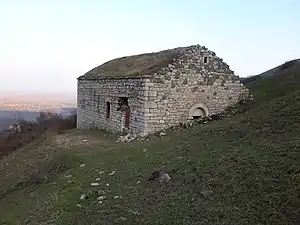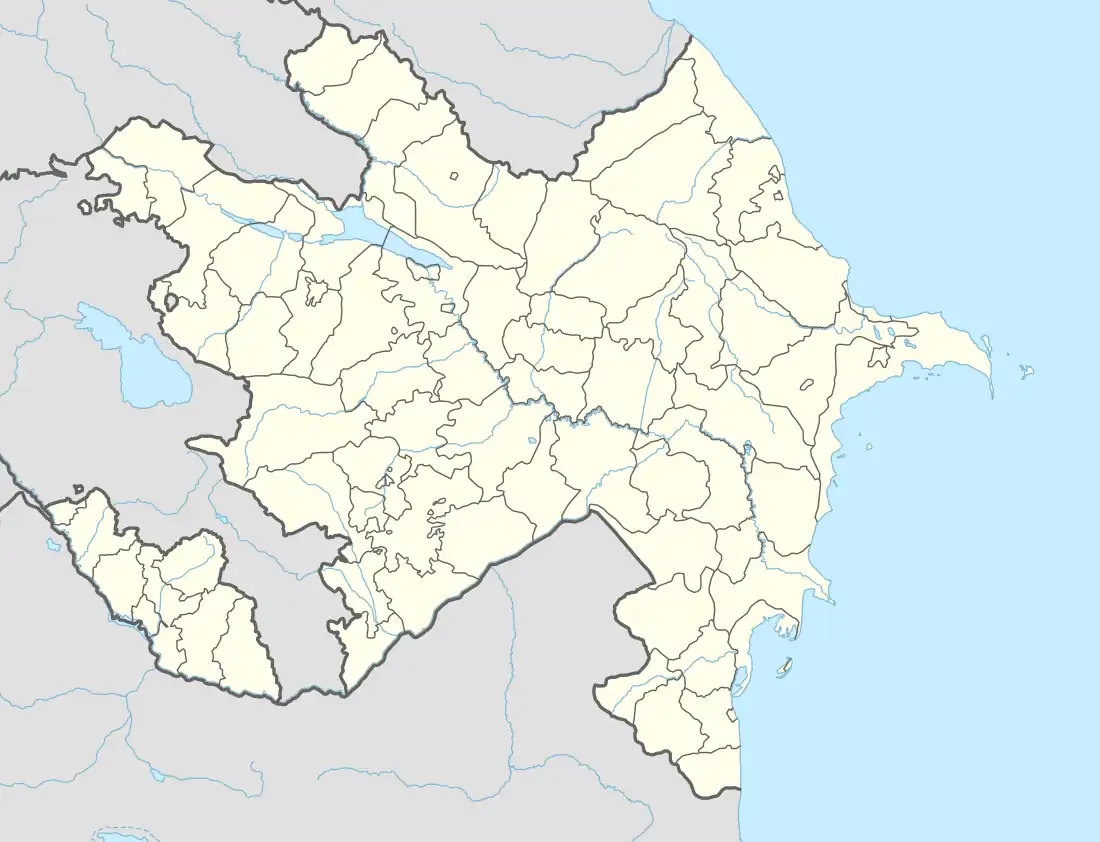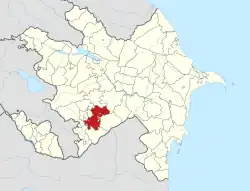Gunashli / Norashen
Günəşli / Նորաշեն | |
|---|---|
 Hin Norashen Church from 1893 | |
 Gunashli / Norashen | |
| Coordinates: 39°30′N 47°05′E / 39.500°N 47.083°E | |
| Country | |
| District | Khojavend |
| Population (2015)[1] | |
| • Total | 159 |
| Time zone | UTC+4 (AZT) |
Gunashli (Azerbaijani: Günəşli, lit. 'sunny') or Norashen (Armenian: Նորաշեն, lit. 'new village') is a village in the Khojavend District of Azerbaijan, in the disputed region of Nagorno-Karabakh. The village had an ethnic Armenian-majority population prior to the 2020 Nagorno-Karabakh war, and also had an Armenian majority in 1989.[2]
History
During the Soviet period, the village was part of the Hadrut District of the Nagorno-Karabakh Autonomous Oblast. After the First Nagorno-Karabakh War, the village was administrated as part of the Hadrut Province of the breakaway Republic of Artsakh. The village was rebuilt after the war, and in September 2006 a new school was built. The village came under the control of Azerbaijan on 20 October 2020, during the 2020 Nagorno-Karabakh war.[3]
Historical heritage sites
Historical heritage sites in and around the village include khachkars from between the 9th and 11th centuries, a 19th-century cemetery, and the church of Hin Norashen (Armenian: Հին Նորաշեն, lit. 'Old Norashen') built in 1893.[1][4]
Demographics
The village had 112 inhabitants in 2005,[5] and 159 inhabitants in 2015.[1]
References
- 1 2 3 Hakob Ghahramanyan. "Directory of socio-economic characteristics of NKR administrative-territorial units (2015)".
- ↑ Андрей Зубов. "Андрей Зубов. Карабах: Мир и Война". drugoivzgliad.com.
- ↑ "President Ilham Aliyev: Zangilan city and 6 villages of the district, 18 villages of Fuzuli, Jabrayil, and Khojavand districts liberated". mod.gov.az. 20 October 2020.
- ↑ "Hin (Old) Norashen Church". monumentwatch.org.
- ↑ "The Results of the 2005 Census of the Nagorno-Karabakh Republic" (PDF). National Statistic Service of the Republic of Artsakh.

